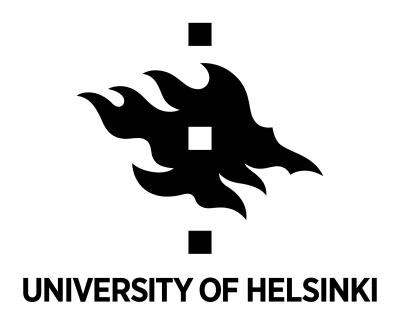
Master in Environmental Change and Global Sustainability
University of Helsinki

Key Information
Campus location
Helsinki, Finland
Languages
English, Finnish, Swedish
Study format
On-Campus
Duration
2 years
Pace
Full time
Tuition fees
EUR 18,000 / per year **
Application deadline
Request info *
Earliest start date
Aug 2024
* from 1.12.2023 to 3.1.2024
** for non-EU/EEA countries
Introduction
How to Make Sustainable Choices on a Global Scale?
Global socio-ecological problems call for multidisciplinary solutions that transcend the usual boundaries of science and decision-making. In the Master's Programme in Environmental Change and Global Sustainability (ECGS), you are trained to tackle global environmental and sustainability challenges by lectures, seminars, project learning and laboratory and field courses.
You can choose from two study tracks: the Environmental Change study track in natural sciences and the Global Sustainability study track in social sciences. You can also study topics like food and sustainability, climate studies, indigenous studies, urban studies, global land use or Baltic sea studies.
Studying
The Master's Programme in Environmental Change and Global Sustainability (ECGS) is truly multidisciplinary. It covers an introductory Core Module of sustainability science common to all students, followed by two distinct study tracks:
Environmental Change study track provides understanding of the functioning of terrestrial and aquatic ecosystems and gives guidance toward their sustainable use.
Global Sustainability study track provides students an understanding of the socio-cultural underpinnings of global sustainability challenges so that you can help to develop solutions that take social and environmental justice into consideration.
Students and Student's Life
Student life and especially the student organisation culture is exceptionally rich and diverse in Finland. Also at the University of Helsinki, the student community is very active.
More than 250 student organisations operate within the Student Union of the University of Helsinki (HYY), ranging from faculty and subject organisations to political and societal organisations, and from choirs and orchestras to sports and game clubs. Their activities include anniversary celebrations, academic dinner parties, cultural events, get-togethers and excursions.
As a student and member of the Student Union (HYY), you are entitled to many benefits and services. For example, affordable student housing, basic healthcare services, sports facilities and student-priced meals. You also get numerous discounts, for example on public transport fees across the country.
Admissions
Curriculum
The credit requirement for the Master’s programme in Environmental Change and Global Sustainability is 120 ECTS credits, which can be completed in two years.
You can apply for one of the two study tracks in the ECGS Master’s programme: the Environmental Change (EC) study track or the Global Sustainability (GS) study track. EC students graduate with a Master’s degree (M.Sc.) in Science or with a Master’s degree (M.Sc.) in Agriculture and Forestry. GS students graduate with a Master’s degree in Social Sciences (M.Soc.Sc.) or with a Master’s degree (M.Sc.) in Agriculture and Forestry. Your Master’s degree (120 credits, ECTS) will consist of the following studies:
- Study-line specific studies, 75 credits, including your Master’s thesis (30 credits)
- Other studies, 45 credits, including 30 credits of Core module studies and 15 credits of elective studies to further enhance your scientific expertise and professional profile.
All students complete an introductory Core Module that focuses on the methodologies of environmental and sustainability science as well as the interactions between science and society.
In addition to the common Core Module studies, applicants choose from two ECGS study tracks: the Environmental Change study track in natural sciences and the Global Sustainability study track in social sciences. Both study tracks offer several modules of advanced studies.
Courses and teaching
The ECGS Master’s programme is taught in English. All assignments, exams and dissertations can be done in English, as well as in Finnish and Swedish.
Courses for ECGS students
See the preliminary syllabus and selection of courses offered by ECGS in the Studies service. Please note that thematic and study track modules include courses that are offered in cooperation with other programmes and thus might not appear on the lists.
Courses for students outside of ECGS
If you are a student in some other master's degree programme at the University of Helsinki but would like to study ECGS courses, that is possible. ECGS offers study modules also for other Helsinki University students. These modules are:
- Food and sustainability
- Consumer citizens and sustainability transition courses
- Environmental policy and economics
Master's Thesis
The Master's thesis is an integral part of your degree. During your second year, you will write an individual Master’s thesis of about 20-40 pages (30 credits). The Master’s thesis is a proving ground there you demonstrate your capabilities in scientific thinking, methodological research and scientific communication and writing. During the writing process, you will also attend a Master’s thesis seminar headed and instructed by a faculty member with expertise in your particular field.
Gallery
Program Outcome
Why Environmental Change and Global Sustainability?
Global socio-ecological problems call for multidisciplinary solutions that transcend the usual boundaries of science and decision-making. The Master's Programme in Environmental Change and Global Sustainability (ECGS) trains you in wide-ranging interdisciplinary thinking skills and provides you with the ability to:
- study environmental and sustainability issues in your respective fields of expertise and
- solve problems of socio-ecological sustainability in cooperation with various social actors.
The programme offers three different degrees – Master of Social Sciences, Master of Science or Master of Science (Agriculture and Forestry). When entering the programme in Master's admission, the degree is determined by the choice of your study track and the modules within the chosen track.
Upon graduating, you will have sufficient expertise in environmental sciences, sustainability sciences and environmental policy to act as a specialist in the public, private and third sectors, and you will have gained essential skills to undertake a career in sustainable business and communication. You can also advance to doctoral level studies and thereafter positions in environment-related research.
Scholarships and Funding
Our scholarship program is for students who are applying to the University of Helsinki. These scholarships are intended for excellent students from outside the EU/EEA, who wish to complete a Master's program at the University of Helsinki. Grants can be applied while applying to the University of Helsinki’s Master’s programs.
Career Opportunities
Career
The interdisciplinary Master’s Programme in Environmental Change and Global Sustainability (ECGS) provides you with a unique education which is widely applicable for a future career path.